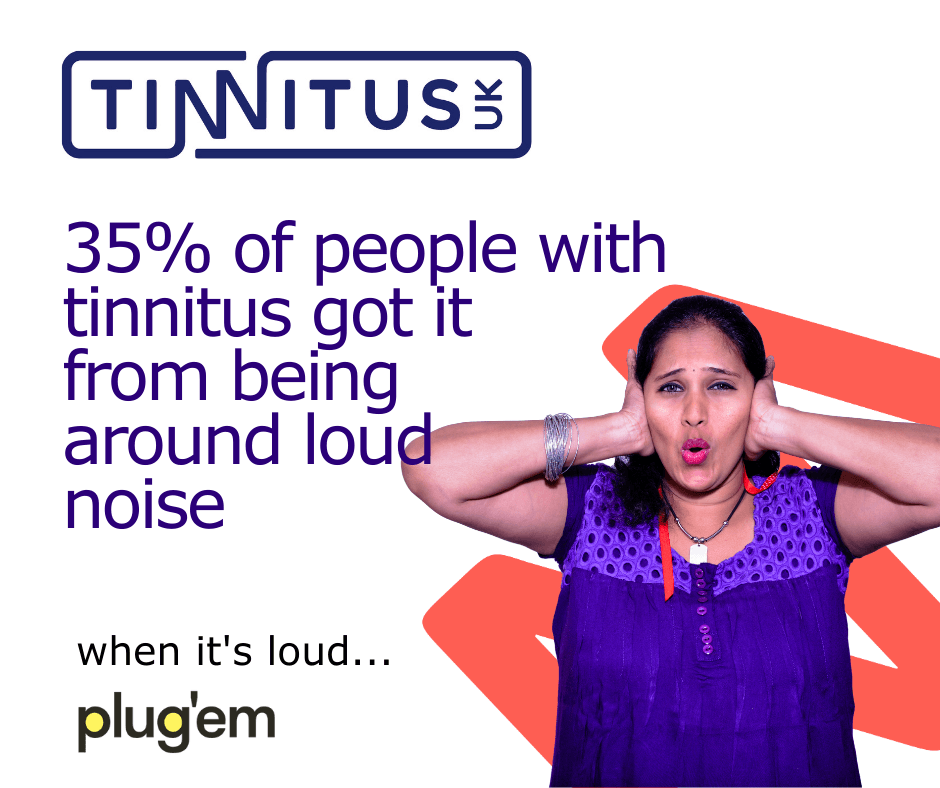In the UK, the rate of tinnitus is rising and now 1 in 7 adults are affected by the condition. Our Industrial Disease Department often help people who have worked in excessively noisy industries and who suffer with hearing loss and tinnitus caused by their work.
So what is Tinnitus, how is it caused and how can it be prevented?
What is tinnitus?
Tinnitus is different for every person who has it but is defined as the sensation of hearing sounds when there is no external source for the sound. Common sounds heard due to tinnitus are ringing, buzzing and whistling, and can be constant or intermittent.
What causes tinnitus?
Tinnitus can be caused by a number of things, although some people may not be able to pinpoint the cause of their tinnitus. Common causes of tinnitus include:
- Hearing loss, whether due to age, exposure to excessive noise or another cause
- Ménière’s disease, a condition affecting the inner ear
- Diabetes
- Multiple sclerosis
- Thyroid conditions
- Anxiety
- Depression
- Medication
- Smoking (nicotine)
Tinnitus Awareness Week
Tinnitus Awareness Week is observed every year over the first full week of February. It is a week to raise awareness of tinnitus and what a debilitating condition this can be. The theme for the week this year is prevention, calling for people working and living in noisy environments to ‘Plug’em!’.
How can you prevent tinnitus?
Once the damage has been caused to a person’s hearing, it cannot be repaired. You can only live with and manage any hearing loss and/or tinnitus. Prevention is, therefore, the best ‘cure’.
Some causes of tinnitus cannot be prevented, however, hearing loss and tinnitus caused by exposure due to excessive noise can be prevented by wearing hearing protection. The Plug’em campaign is aimed at getting people thinking about protecting their ears, in the same way that like they would protect their eyes by wearing sunglasses on a sunny day.
Outside of work, people who go to music gigs or nightclubs, ride motorbikes, use tools for DIY or do anything that involves high levels of noise, should wear hearing protection, either in the form of ear plugs or ear defenders. These can be bought cheaply and are small enough to carry in a pocket or bag, ready for when they are needed.
There is something of a stigma with wearing hearing protection and the Plug’em campaign aims to remove the stigma and show that hearing protection can be worn whilst still enjoying good quality sound and without looking like you’re on a building site.
People who work in noisy environments, where the noise levels are over 80dB(A) should all be trained on the risks of being exposed to noise. Anyone working in a noisy environment where the noise levels are over 85dB(A) should have hearing protection available and they should wear it, as this is the level of noise that can cause damage to a person’s hearing.
What is loud?
It can be difficult to know if you are in an environment that is so loud you could be damaging your hearing. The general rule is, if you have to shout to be heard by someone who is just a few feet away from you, it is a noisy environment and you should be protecting your hearing.
To give it some context, the average decibel level of a kitchen blender is 85dB, listening to an MP3 player at full volume is 103dB and a live rock band is 112dB. Being around these sound levels for long periods of time, without hearing protection, could cause damage to your hearing and/or cause tinnitus.
Further information
For further information about National Tinnitus Week 2023, visit Tinnitus UK (previously The British Tinnitus Association).
How can we help?
Our Industrial Disease Team has extensive experience in helping people suffering with hearing loss and tinnitus caused by exposure to excessive noise at work. Our specialist team of solicitors, as well as a fully trained audiologist, will fight for the compensation that you deserve. Our team understands that it can be a very difficult and daunting time for you and they will do their best to offer an unparalleled support network and specialist legal expertise.
If you have suffered a personal injury, which was not your fault, you may be entitled to make a claim for compensation. If you are suffering from loss of hearing, buzzing or ringing in your ears, you may be entitled to claim for compensation.
We understand that the symptoms that you are suffering from can have serious consequences on your day-to-day life. When fighting for your compensation we take into account any time you have had to take off work, any treatment you have had to pay for including the cost of hearing aids and any other losses that you may have incurred.
All claims are dealt with on a no win, no fee basis.
Call 01244 312306 to speak to a member of our specialist team of Industrial Disease lawyers who will assist you further with this matter.















